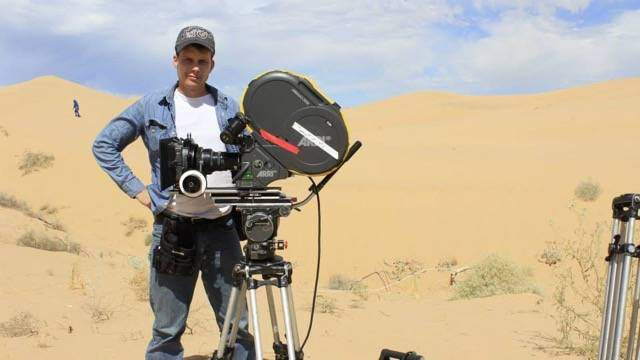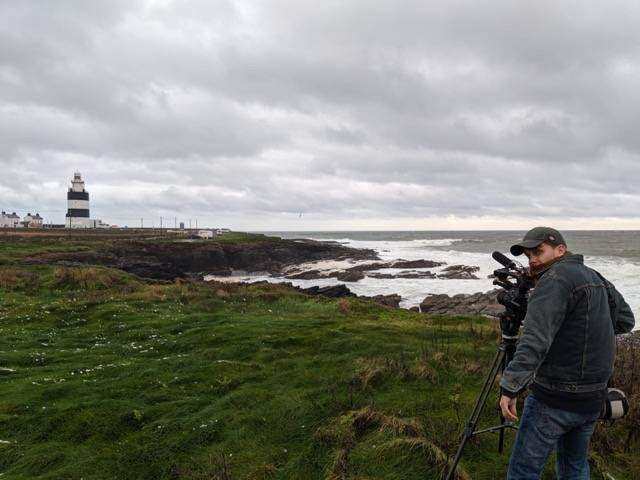
Mark Twain’s famous quote “’Travel is fatal to prejudice, bigotry and narrow-mindedness” is the sign off for every episode of the PBS series Travelscope by Joseph Rosendo. The responsibility for the visual accentuation of this ethos lies in the hands of cinematographer Marko Alonso. Directly recommended by the show’s longtime editor Óscar Rodriguez, Alonso joined this award-winning travel series, bringing his film industry experience and creative sensibilities to this show which earned an Emmy Nomination during his first season working on it.
In addition to the program’s nods from the Emmys, it has received a number of Telly Awards including the Telly Award for Marko’s Cinematography work on “The Mekong River Adventure” shot in Cambodia. The production team is small and moves rapidly, confirming the immense talent needed in each position.
The cinematography and the emotion it cultivates is paramount in this show which aspires to relate how the people of the world are both unique and similar; it’s a perspective which the host adds during the end of each episode “It’s a truth that first turned me on to travel and has kept me hooked for more than thirty years.” With a mission like this, Travelscope is bringing the world some much needed understanding in an era of discord.

With a decade and a half of production under its belt, Travelscope has solidified a reputation as one of the most fascinating and fulfilling travel programs to watch; Marko will add that it’s also one of the most demanding to shoot. As the DP of the most recent seasons (9-12), Alonso has made it part of his mission to challenge his visual style and the equipment he works with for the show.
Rebuking any tried and true “cookie cutter” method, it’s the lack of anything static in his approach that continues to pique the interest of viewers. In a statement that sounds more rooted in improvisational jazz than filmmaking, Marko professes, “My fixations is always upon capturing that decisive moment which speaks to the audience far louder than any setting you might have on the camera.
If you do this correctly, the audience will forget that they are staring at a box in their living room and instead feel that they are standing next to the host while experiencing everything he is.” When pressed, this cinematographer concedes he has a preference for establishing movement and rhythm in a shot, as well as a belief that the faces of children and the elderly are far more interesting than those deemed culturally beautiful.
You’d likely not guess that Travelscope is created by a four-person team consisting of Director/Host/Writer Joseph Rosendo, his wife/producer Julie, Alonso, and an audio professional. The quartet travels expeditiously and without the need for constant scrutiny. A six-time Emmy Award Winner with eighteen nominations, forty-two Telly Awards, and copious other accolades, Rosendo hires only premier talent whom he trusts implicitly. Such a work environment is founded in a belief of your fellow collaborators and supports the global treks the program is known for.
From Buddhist Temples in Cambodia to the Pubs of Ireland and Lobster Fishing boats in Maine, Marko’s work has both presented the stories of these people and allowed him to feel the emotions that vibrate from them.
Alonso reveals, “I love scripted and non-scripted production work. The set of priorities is different if you are working with reality itself than if you are creating a story out of thin air. In these travel shows, I always have to put the people we are portraying first, and all my thoughts and actions have to revolve around that. In the case of a scripted story, I feel the key word is to be in control of what you are creating, while for non-scripted the key word is to be ready.
When I’m shooting Joseph Rosendo’s Travelscope I’m experiencing reality alongside the people we are filming. There have been surprising moments and moments where I was filming with tears in my eyes as I experienced very special moments in the lives of these people. The reward of using your skill to present these real human stories to the world is incredibly fulfilling.”